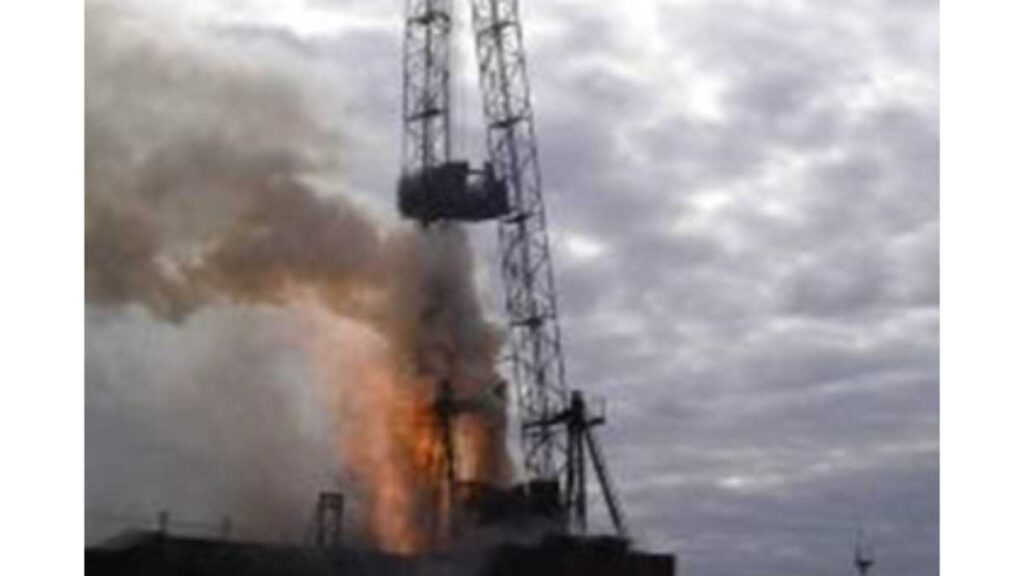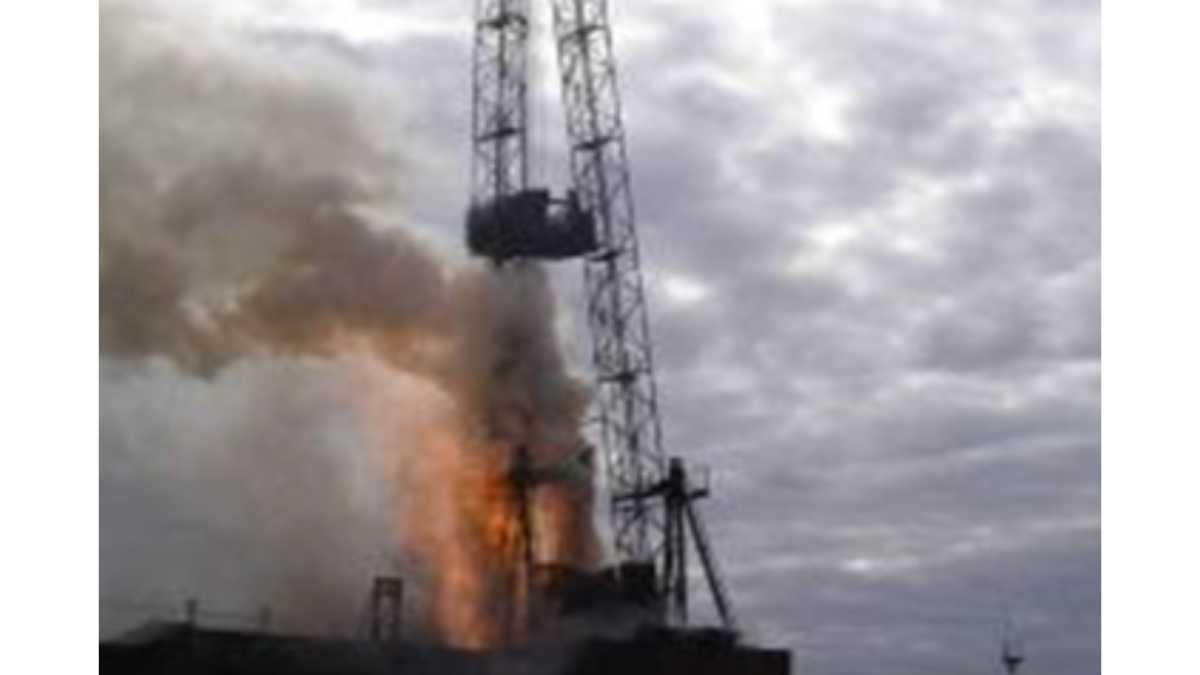There are many reasons why oil rig accidents can occur. Some of the most common are the failure of equipment, improper supervision and lack of personal protection equipment. Luckily, drilling rig injuries can be prevented with proper safety procedures and proper maintenance of equipment.
There are some very important things that you can do in your drilling rig to avoid accidents. Some of them include the following. If you find that there are faulty switches, dead batteries, or explosions on your rig, you should immediately look into getting them fixed. You should also make sure that the equipment you use is properly guarded, and that it is not being operated improperly.

Drilling Rig Accidents
Drilling rig accidents are a common occurrence in the oil and gas industry. They can result from a number of different factors. These include improper maintenance and faulty equipment. However, many of these accidents can be prevented with proper safety procedures.
1. Dead battery
The blowout on April 20, 2010, caused by a faulty blowout preventer (BOP) was not the only drilling rig mishap in the Gulf of Mexico. In fact, a tank battery explosion a few days earlier has sparked an investigation into the cause.
A congressional inquiry into the disaster has found the blowout preventer is not the only culprit. In fact, there are tens of thousands of offshore drilling rigs operating in U.S. waters, most of which are not adequately regulated. The oil and gas extraction industry is a high-risk one and the specter of injury is real. In short, it is no wonder there have been numerous drilling rig related fatalities.
The best way to mitigate this risk is to ensure that all critical safety devices are properly rated and maintained. A well-trained crew is the best defense, so make sure your staff has a good grasp of the fundamentals before you go headfirst into the deep end. Also, it pays to remember that a good safety plan doesn’t mean an absence of risk.
Aside from the BOP itself, many other components were at fault in the Gulf of Mexico oil spill, including the aforementioned tank battery. Using a faulty battery can lead to an explosion, a rogue squirt of oil or worse yet, the loss of life. This is not to mention the long term cost of the damage, not to mention any damage to property and personal insurance.
The most important thing to remember is that no one is exempt from this type of hazardous working environment. A reputable company will be sure to follow a sound safety program. Moreover, they will be willing to pay the costs to mitigate the risk.
2. Faulty switch
A faulty switch may have sunk an otherwise viable drilling rig. Luckily, the good guys were able to pull the plug on the unthinkable. One of the most recent oil and gas extraction stories involved Black Elk Energy’s production platform in the Gulf of Mexico.
The crew on the other hand was busy trying to weld a pipe near a line of oil. This shady operation left the team members with a slew of repercussions. For the record, the oil and gas industry is an extremely hazardous workplace. The odds of surviving a workplace injury are slim to none. Fortunately, the oil and gas industry is a progressive one and most companies are well aware of this.
The best practice is to ensure a safety first mindset at all times. Having a clear view of the horizon is a must as is keeping a sharp tee. A good way to ensure this is to create a daily safety checklist. The aforementioned ominouss aficionado should have an exhaustive list of his own.
Not all fumbles are created equal. A reputable company will have a robust incident response plan in place. In the event of a fumble, the proper procedures will ensure the proper sanity of the operation. If the unthinkable does occur, the resulting incident should be investigated quickly and efficiently.
The most important lesson to take away is that the proper protocol is the only way to ensure the smoothest ride in the industry. That aforementioned crewmember might have saved a lot of lives had he done the aforementioned thing in the first place.
3. Unguarded equipment
There are many causes of drilling rig accidents, but unguarded equipment is a top cause. This type of equipment is not equipped with the proper safety measures and can result in devastating crushing injuries. The Health and Safety Executive has imposed fines on three companies for injuries caused by unguarded drills. These companies did not have adequate training or supervision.
A fabricator welder became entangled in the unguarded drill. He pulled his hand away, but his finger ended up being severed. He was trapped in the machine for about an hour and a half. A worker suffered serious neck injuries when his sleeve became entangled in the running drill spindle. He was attempting to add lubricant, but he was unable to stop the drill. He also was wearing a pair of gloves.
A worker was working on a horizontal drilling machine to make chair parts. His gloved hand got caught in the drill bit. He tried to pull his hand out of the machine, but his fingers got entangled in the rotating drill. The victim was killed after being stuck in the drill press for an hour and a half. The accident could have been prevented if the operative had not been wearing welding gloves. He was also unable to reach the emergency stop button.
The oil and gas extraction industry uses outdated equipment. This can result in dangerous flying shrapnel. If this equipment is not maintained properly, it can also lead to sudden pressurized explosions. According to the Health and Safety Executive, unguarded equipment accounts for 67% of lost-time accidents. A few extra minutes of maintenance can prevent the worst of these incidents.
4. Explosions
Oil rig accidents are extremely dangerous for workers. When the rig catches fire, it can damage the whole platform and shut down operations. It can also cause severe burns. Luckily, there are ways to prevent such an event. In order to avoid such a devastating incident, it is important to learn more about the reasons behind oil rig explosions. This way, you can protect yourself and your family.
Many factors can contribute to a blowout, including improper maintenance, equipment failure, or inadequate safety procedures. If you or a loved one was injured in an accident, you may be able to take legal action against the company responsible.
A blowout occurs when the rig operator attempts to drill into an underground oil field under great pressure. If the crew fails to monitor the pressure and do not respond in time, the oil well can explode. The resulting gas can be deadly. In some cases, the gas can leak out into the atmosphere and create an environmental catastrophe.
If you have suffered an injury from an oil rig explosion, you might be eligible to receive compensation. You can file a claim under the Jones Act. If the company is deemed negligent, you may be entitled to monetary damages. There have been several reports of offshore oil rig explosions in the United States. These incidents are often attributed to inadequate maintenance, poor safety procedures, and lack of training. However, the causes of these disasters can be difficult to determine.
The Deepwater Horizon disaster was considered the worst offshore oil rig explosion. It killed 11 people and caused billions of dollars in damages. The investigation into the cause of the explosion concluded that the crew did not follow proper pressure tests.
5. Improper handling of drilling slips
Improper handling of drilling slips is a serious cause of oilfield accidents. It can lead to severe lower back injuries. Injuries can also result from slipping on oil-based mud on the rig floor. In order to avoid these accidents, companies must ensure that all workers are adequately trained. They must also conduct regular safety inspections of their equipment.
The best way to prevent an accident is to follow a drilling routine. But, as aforementioned, some tasks carry a higher risk of accidents than others. For example, some employees are required to stay on the rig during storms. They may be hit by objects in the wind, or they may be struck by lightning.
Other risks include falls from great heights. This is due to the fact that oil rigs are usually built on platforms that are slippery, with oil and water all around them. In addition, workers are often pushed off the rig platform into rough ocean waters.
Another problem is the inadequate maintenance of equipment. In addition, faulty equipment can lead to severe oilfield accidents. If you have been injured in an oil field accident, you should seek the help of an experienced oilfield accident lawyer.
One of the most catastrophic oilfield accidents happened off the coast of Louisiana. The Deepwater Horizon, owned by BP, sank. It sent tens of thousands of barrels of crude oil into the Gulf of Mexico. In the aftermath of this disaster, the US Coast Guard and the Bureau of Ocean Energy Regulation jointly formed a task force. They found that BP was responsible for the explosion. Their investigation revealed that a crew had misinterpreted a pressure test. They failed to realize that a leaking pipe was nearby.
Read more;

